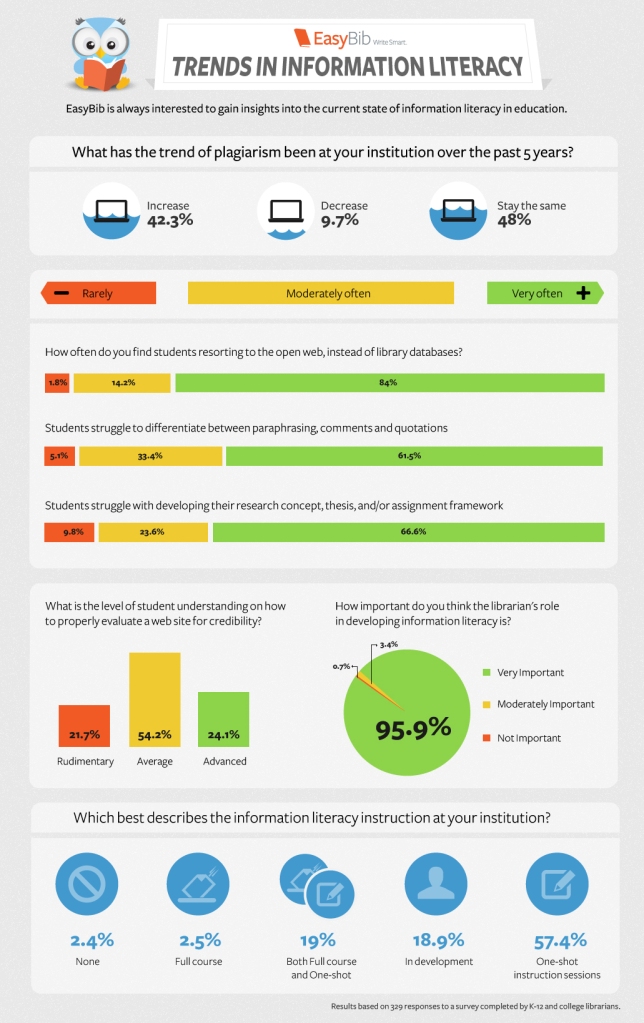http://www.rochester.edu/pr/Review/V68N1/inrev15.html
How can academic libraries best help students sort through the growing thicket of online information? By Stanley Wilder
The premise of information literacy is that the supply of information has become overwhelming, and that students need a rigorous program of instruction in research or library-use skills, provided wholly or in part by librarians.
The idea behind information literacy is that our typical freshman is drowning in information, when in fact Google provides her with material she finds good enough, and does so instantaneously. Information literacy assumes that she accepts unquestioningly the information she finds on the Internet, when we know from research that she is a skeptic who filters her results to the best of her ability. Information literacy tells us that she cannot recognize when she needs information, nor can she find, analyze, or use it, when she demonstrably does all of those things perfectly well, albeit at a relatively unsophisticated level.
Simply put, information literacy perceives a problem that does not exist. Furthermore, it misses the real threat of the Internet altogether—which is that it is now sufficiently simple and powerful that students can graduate without ever using the library. That is unfortunate because, for all its strengths, the Internet cannot give students the high-quality scholarly information that is available only through subscription, license, or purchase.
As Roy Tennant noted in the January 1, 2001, Library Journal, “only librarians like to search; everyone else likes to find.” Any educational philosophy is doomed to failure if it views students as information seekers in need of information-seeking training.
Information literacy is also harmful because it encourages librarians to teach ways to deal with the complexity of information retrieval, rather than to try to reduce that complexity.
“The library is a place where readers come to write, and writers come to read.” Dow casts students not as information seekers, but as apprentices engaged in a continuous cycle of reading and writing.
Librarians should use their expertise to deepen students’ understanding of the disciplines they study. My note: ant that’s why LRS needs area specialists, not traditional librarians.
The library must also do a better job of reaching more students, more often. Librarians need to use their expertise to make the library’s online presence approach the simplicity and power of the Internet.
http://projectinfolit.org/
about early adults and their research habits

